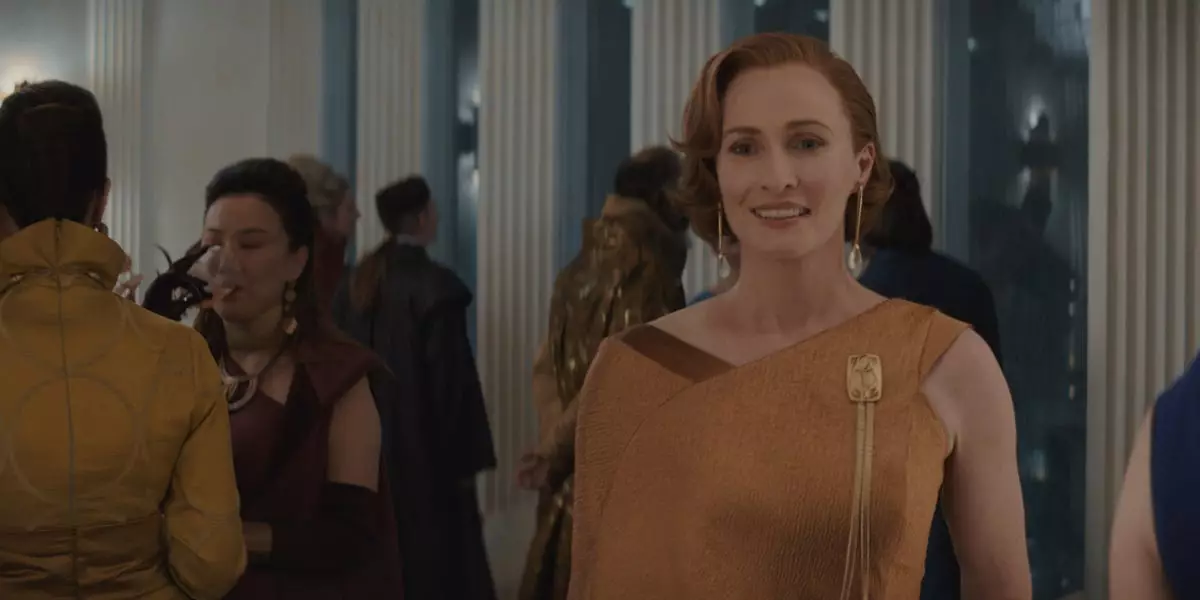Andor has returned for its second and final season on Disney+, promising not just to entertain, but to challenge its viewers with a deeper understanding of resistance and rebellion. Set in the iconic Star Wars universe, this series shines a light on the often-overlooked intricacies surrounding the quest for freedom against tyranny. Cassian Andor (played by the compelling Diego Luna) is not just a rebel spy; he is a representation of the everyday person pushed to their limits, striving to make a difference. Creator Tony Gilroy brilliantly encapsulates the narrative of Andor as “a story about revolution, and the making of a revolutionary,” establishing an emotional connection that resonates in today’s socio-political climate.
The revolutionary aspects laid bare in this series extend beyond mere battles between dark and light; they delve into the conflicting, messy reality behind revolutions. Gilroy emphasizes a critical aspect that has largely been glossed over in many narratives: the logistics of rebellion. “Every revolution I ever read about, the primary concern is where the resources come from,” he pointed out, acknowledging a glaring gap in most popular storytelling. This focus elevates Andor from typical sci-fi fare to a thought-provoking examination of sacrifice, ethics, and the dire choices that must be made in the struggle against oppressive systems.
Character-Driven Storytelling: More Than Just Action
The show’s strength lies in its multifaceted characters who go beyond the archetypal hero. As Genevieve O’Reilly, who portrays Mon Mothma, remarked, Andor often feels like “Downton Abbey in Star Wars,” highlighting the interpersonal relationships that keep the narrative grounded. It’s not just about the galactic battles; the series brings a refreshing human element to the forefront, portraying the nuances of camaraderie, family ties, and the existential threats that loom over these individuals. This character-driven storytelling stands in stark contrast to many other entries in the Star Wars franchise, which often prioritizes spectacle over substance.
Luna’s remarks on the evolving nature of storytelling in Andor add another layer of appeal. He describes the writing as transformative—“full of layers”—prompting viewers to stay engaged as the plot unfolds in unexpected ways. This depth encourages audiences to invest not just in the outcome of individual arcs but in the overarching narrative of resistance, making each episode a captivating experience.
A New Structure for a New Era
With its second season structured around four distinct time jumps, Andor takes a bold approach to pacing and storytelling. Each three-episode arc delves into critical moments leading up to the events of Rogue One, providing insight into the development of a united front against the Empire. This approach not only maintains tension but also accentuates the urgency and emotional stakes experienced by the characters. As Gilroy explains, the intention was to create “the most intense three days” contained within each arc, skillfully building towards an inevitable climax.
Fans and newcomers alike will appreciate that Andor is designed to be accessible. “You don’t have to know anything to come into the show and start watching,” as Gilroy puts it. This inclusivity may well broaden the fanbase, inviting a diverse array of viewers to witness the unfolding saga of rebellion against totalitarianism without needing an encyclopedic knowledge of Star Wars lore.
Broadening Perspectives: The People Behind the Power
What makes Andor particularly striking is its keen focus on the everyday lives of spies, politicians, and civilians who form the backbone of the resistance effort. The show offers a refreshing departure from the traditional hero-centric narratives common in the genre. Here, each character represents a voice in the larger chorus against oppression, showcasing that heroism is not limited to those who wield light sabers or wear capes. Instead, heroism can manifest in the form of persistent whispers of dissent, small acts of defiance, and the collective effort of individuals rallying against indiscriminate power.
As the anticipation builds for how this season will resolve its complex narratives, it’s clear that Andor stands as a testament to the meaningful exploration of its themes. By marrying character depth with real-world implications, viewers are given not just a show, but a moment—a moment to reflect on the resilience of the human spirit when faced with insurmountable odds. The legacy of Andor promises to be one that transcends its science fiction roots, encouraging a dialogue about revolution and the enduring fight for freedom.

